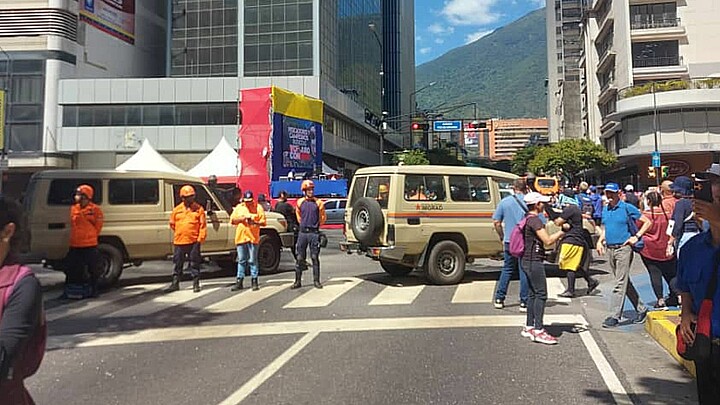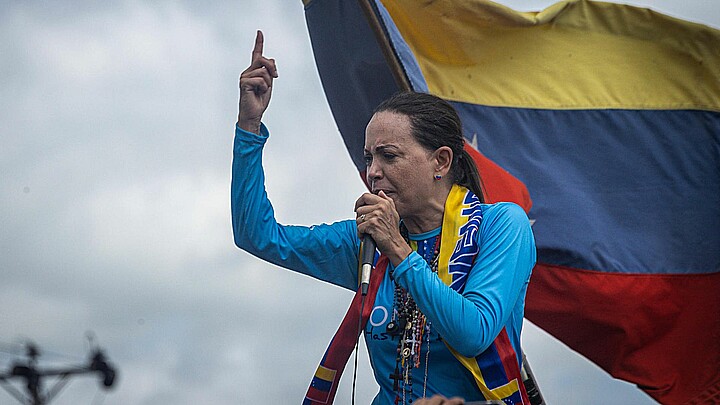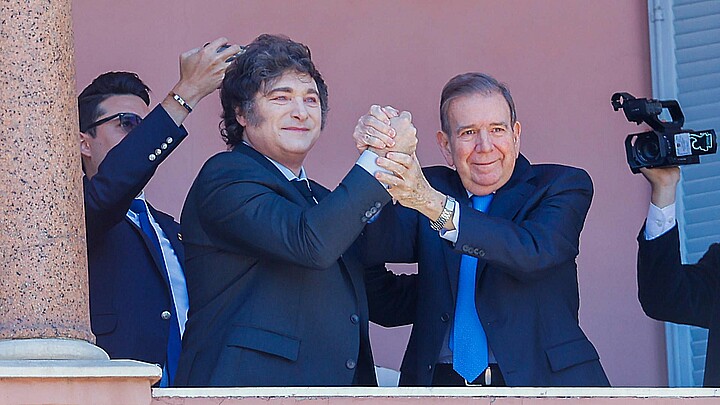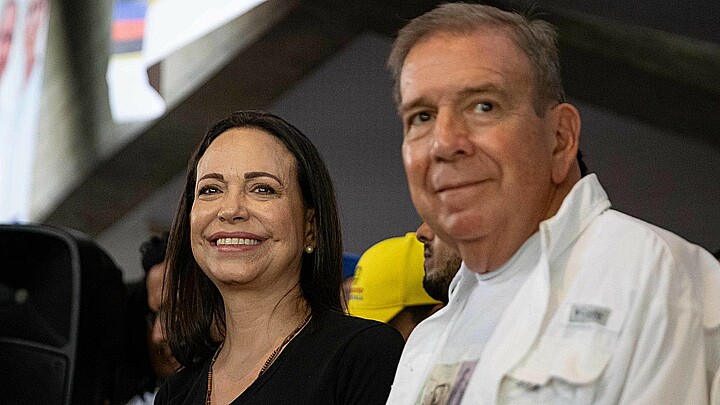Politics
Chile, Uruguay, Paraguay and Guatemala condemn Venezuelan Supreme Court's election ruling as "fraud"
This Thursday, several countries in the region described the ruling of the Supreme Court of Justice (TSJ) of Venezuela as a “fraud”

August 23, 2024 9:43am
Updated: August 26, 2024 9:49am
Chile, Uruguay, Paraguay and Guatemala said this Thursday the ruling of Venezuela’s Supreme Court of Justice (TSJ), confirming the July 28 victory of the dictator Nicolás Maduro was based on “fraud.”
Meanwhile, the leaders of Colombia, Brazil and Mexico, who tried to mediate in the post-election crisis in that South American country, have not yet spoken out.
The ruling of the TSJ, which concludes in an “unequivocal and unrestricted” manner, the review of the elections, occurred 22 days after Maduro requested the process as part of an effort to solidify his victory.
As part of that process, the Venezuelan TSJ summoned 10 former presidential candidates to the Supreme Court.
One of the first to speak on the developing situation was the Chilean President Gabriel Boric, who said that with the ruling “the fraud has finished being consolidated” into the election results.
“Today the TSJ of Venezuela finishes consolidating the fraud,” Boric wrote on X. “The Maduro regime obviously welcomes with enthusiasm its sentence that will be marked by infamy. There is no doubt that we are facing a dictatorship that falsifies elections, represses those who think differently and is indifferent facing the largest exile in the world only comparable to that of Syria as a result of a war.”
Hoy el TSJ de Venezuela termina de consolidar el fraude. El régimen de Maduro obviamente acoge con entusiasmo su sentencia que estará signada por la infamia. No hay duda que estamos frente a una dictadura que falsea elecciones, reprime al que piensa distinto y es indiferente ante…
— Gabriel Boric Font (@GabrielBoric) August 22, 2024
Uruguayan President Luis Lacalle Pou, expressed similar sentiments, saying that “the Maduro regime confirms what the international community has been denouncing: fraud. A dictatorship that closes all the doors to an institutional and democratic life of his people.”
For his part, Paraguayan President Santiago Peña, considered the decision of the TSJ “unacceptable" without an “exhaustive and independent” review of the votes and “deeply regretted the decision of the Government of Venezuela to advance in the ratification of electoral results that did not “They reflect the will of the Venezuelan people.”
Also Guatemalan President Bernardo Arévalo de León, insisted that his country does not recognize the electoral “fraud” perpetrated by the “regime” of Nicolás Maduro.
“The crisis in Venezuela is indisputable, and from Guatemala we have already said that its recent elections are only a demonstration of it: the Maduro regime is not democratic and we do not recognize its fraud,” said the president in a message on the social network.
Likewise, former Colombian President Juan Manuel Santos, 2016 Nobel Peace Prize winner, described the decision of the Supreme Court of Justice as a “hoax,” while former President Iván Duque, who led a “diplomatic siege” against the Maduro Government between 2018 and 2022, said the ruling was “a blow to the Venezuelan people.”
“The ruling of the Supreme Court of Venezuela is a hoax. Colombia cannot, nor should it, endorse it, as we said yesterday to the chancellor (Luis Gilberto Murillo) at the Foreign Relations Advisory Commission,” said Santos, who governed the Andean country between 2010 and 2018, in a message published on the social network X.
For his part, Duque said that "now what the dictator hopes is that based on that opinion, which has no basis or support, and which also ends up validating that the National Electoral Council (CNE) was at the service of him stealing the elections, they come out several countries sympathetic to his dictatorship in the international community to recognize him as legitimate president.”
Along the same lines, the Nicaraguan Democratic Concertation (CDN-Monteverde) rejected “the attempt by the Nicolás Maduro regime to legitimize electoral fraud, through a resolution of the Electoral Chamber of the TSJ of Venezuela, which also seeks to legalize the coup d'état against the popular sovereignty of the people who expressed themselves at the polls on July 28, mostly in favor of opposition candidate Edmundo González Urrutia.
So far the governments of Brazil, Colombia and Mexico, which are close to the Maduro regime and have made medication efforts to provide a peaceful solution to the crisis, have not spoken out.










